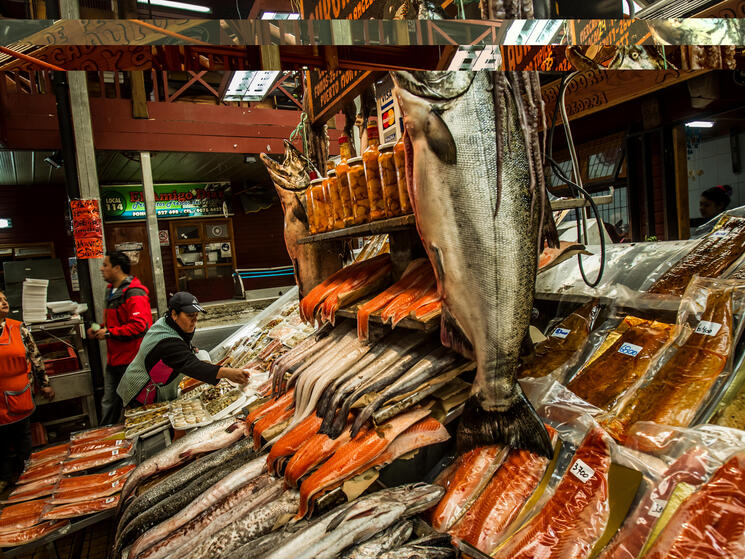
A global framework for securing the world's seafood supplies
- Date: 12 March 2015
The time has finally come to bring the global seafood business into the 21st Century.
Today, wild-caught seafood – one of the most highly traded food commodities – moves from producers to consumers through a supply chain that is global, diffuse, complex, and in most cases highly opaque.
Traceability – or the practice of tracking seafood from bait to plate – remains an urgent need. While a growing list of seafood businesses have proprietary traceability systems, and governments are increasingly focused on traceability regulations, better coordinated business systems and government policies are needed to put affordable and effective solutions within reach. The absence of a global framework for seafood traceability is a fundamental obstacle to achieving “sustainable seafood”, let alone legal seafood.
In fact, poor traceability, combined with the lack of basic practices for verifying the legal origins of wild fish products, is helping enable rampant illegal fishing around the world. Illegal fishing is estimated to account for 13-31% of worldwide fish catches. Without good traceability systems, innocent consumers in markets like the U.S., Europe, and Japan inadvertently support illegal actors.
Over the last several decades, most global fisheries have faced fishing pressure up to or beyond their biological limits. The unprecedented scale of this depletion stems from unsustainable and irresponsible fishing practices that still characterize “business as usual” in far too many fisheries around the world. Despite decades of international enforcement efforts, illegal, unreported, and unregulated (IUU) fishing remains rampant, accounting for as much as thirty percent of seafood harvested globally.
There have been efforts to improve practices and provide transparency along seafood supply chains. And a certification system such as the Marine Stewardship Council offers reliable chains of custody for the products bearing its label. However, seafood markets still cannot routinely distinguish between fish products that are legally or illegally caught.
Remote monitoring, electronic recordkeeping, and globalized systems for sharing digital information make it entirely plausible for all seafood to be made traceable from bait to plate. Some companies already provide this level of transparency and assurance to their customers. Even small-scale producers and businesses in developing countries can now have ready and affordable access to these technologies.
A shared global framework for seafood traceability and legality needs to be based on a combination of private sector voluntary standards and harmonized governmental regulations, and it needs to address issues at both national and global scales. In a report being released today, several of the world's leading food distributors, environmental NGOs (including WWF), food science institutes, and seafood industry experts have come together around a vision for achieving the needed framework. A few key recommendations of their expert panel include:
- Industry and other stakeholders should launch a global dialogue to agree on and adopt common international standards and protocols for tracking seafood products and for sharing digitized data about their origins;
- Governments should accelerate creation of a new “global record of fishing vessels” to provide a worldwide system that prevents vessels from hiding their identity through frequent name changes or flying false flags;
- Governments, industry, and conservationists should expand and harmonize the use of “landing authorizations” to ensuring that the legality of fish catches can be verified as they come off the boats;
- Industry should commit to making a full transition to electronic product traceability within five years; and
- Governments should adopt border measures that set minimum standards for seafood traceability and proof of legal origin for seafood products traded internationally.
The expert panel also called for a global dialogue to develop and begin the implementation of the framework. This should be among seafood industry actors, with appropriate participation of civil society experts and representatives, and in consultation with government policymakers.
The need for such a dialogue is real and immediate, and its prompt initiation would contribute significantly to speeding and smoothing the transition to a world where all wild–caught seafood is fully traceable to demonstrably legal fishing activities.
The full report from the panel can be found here [PDF].